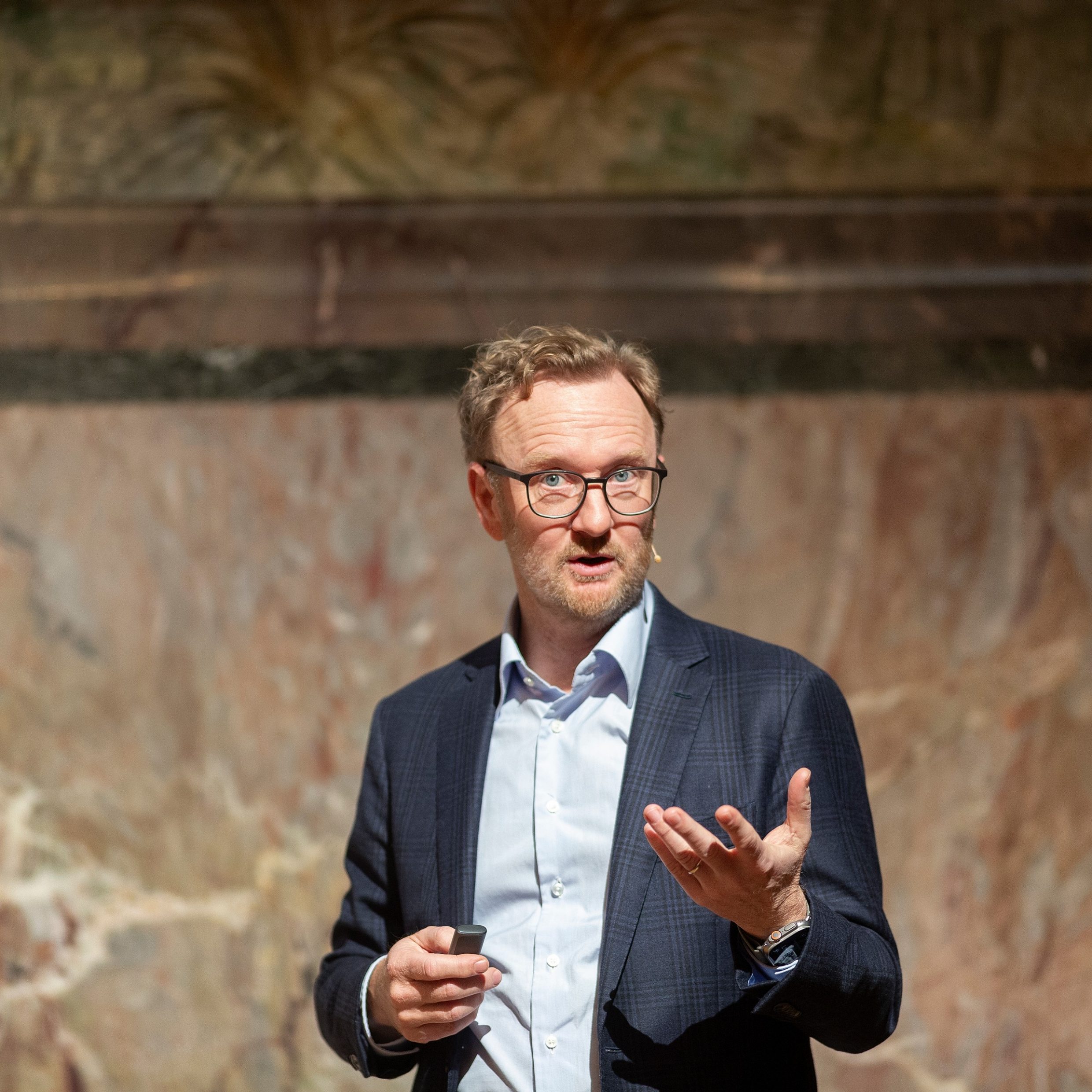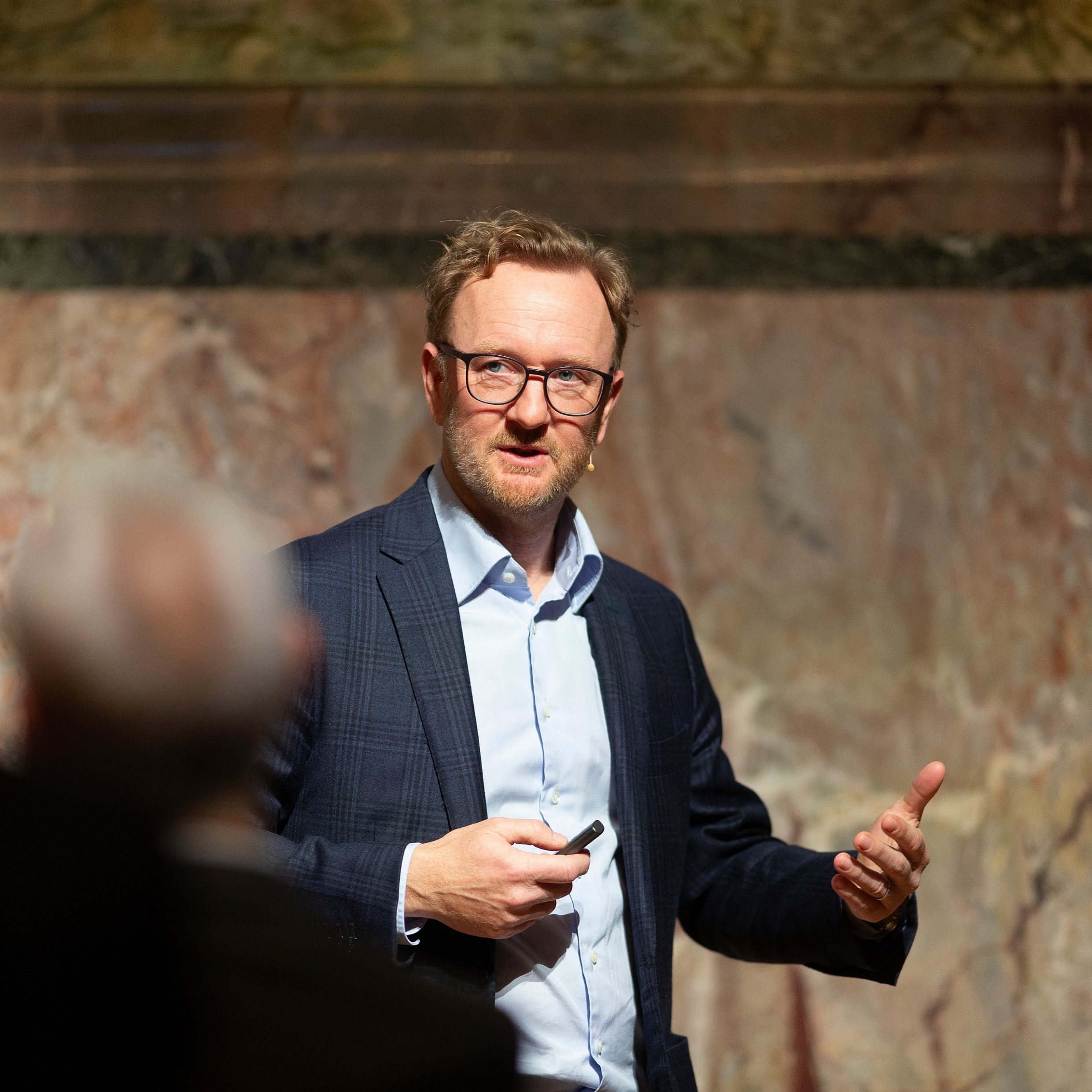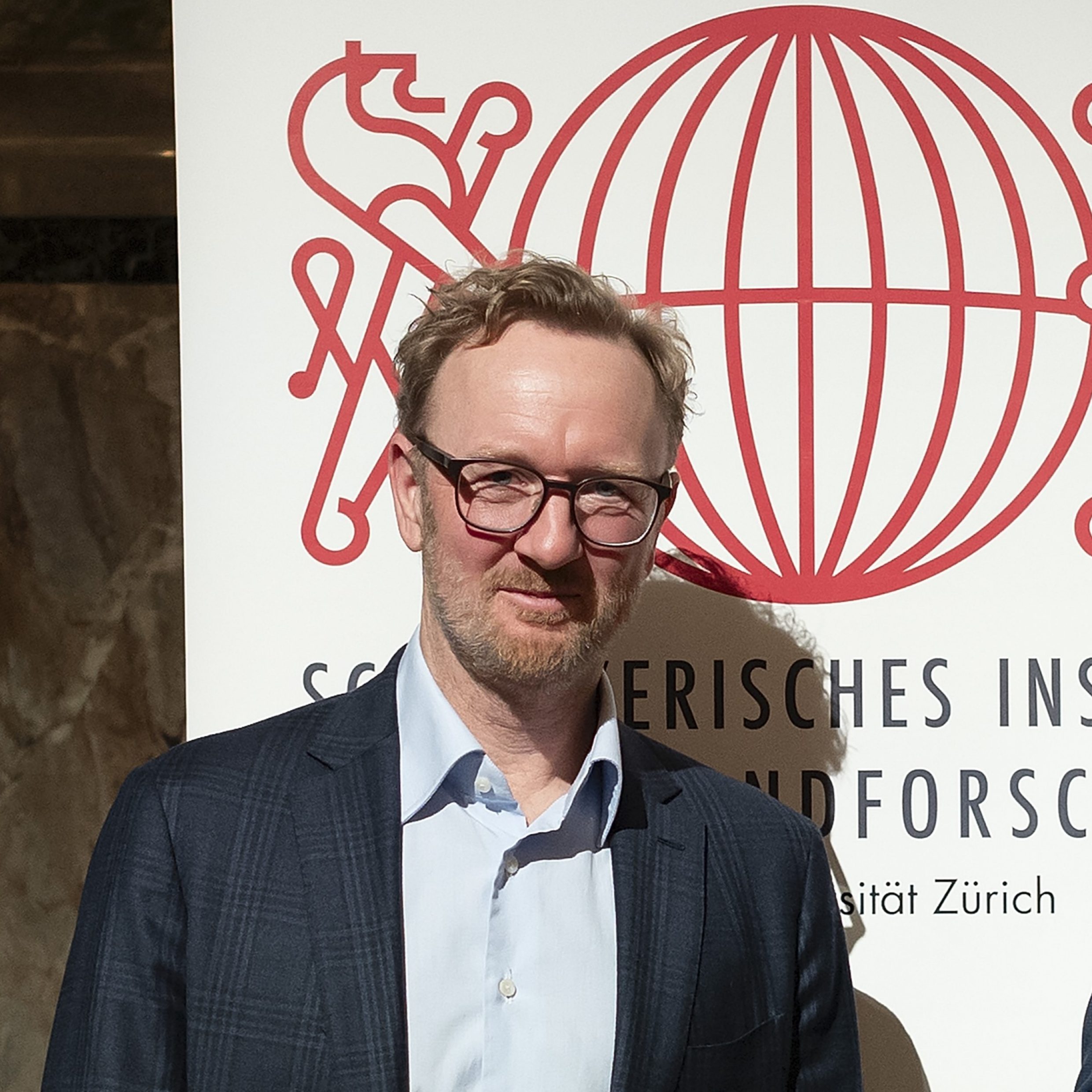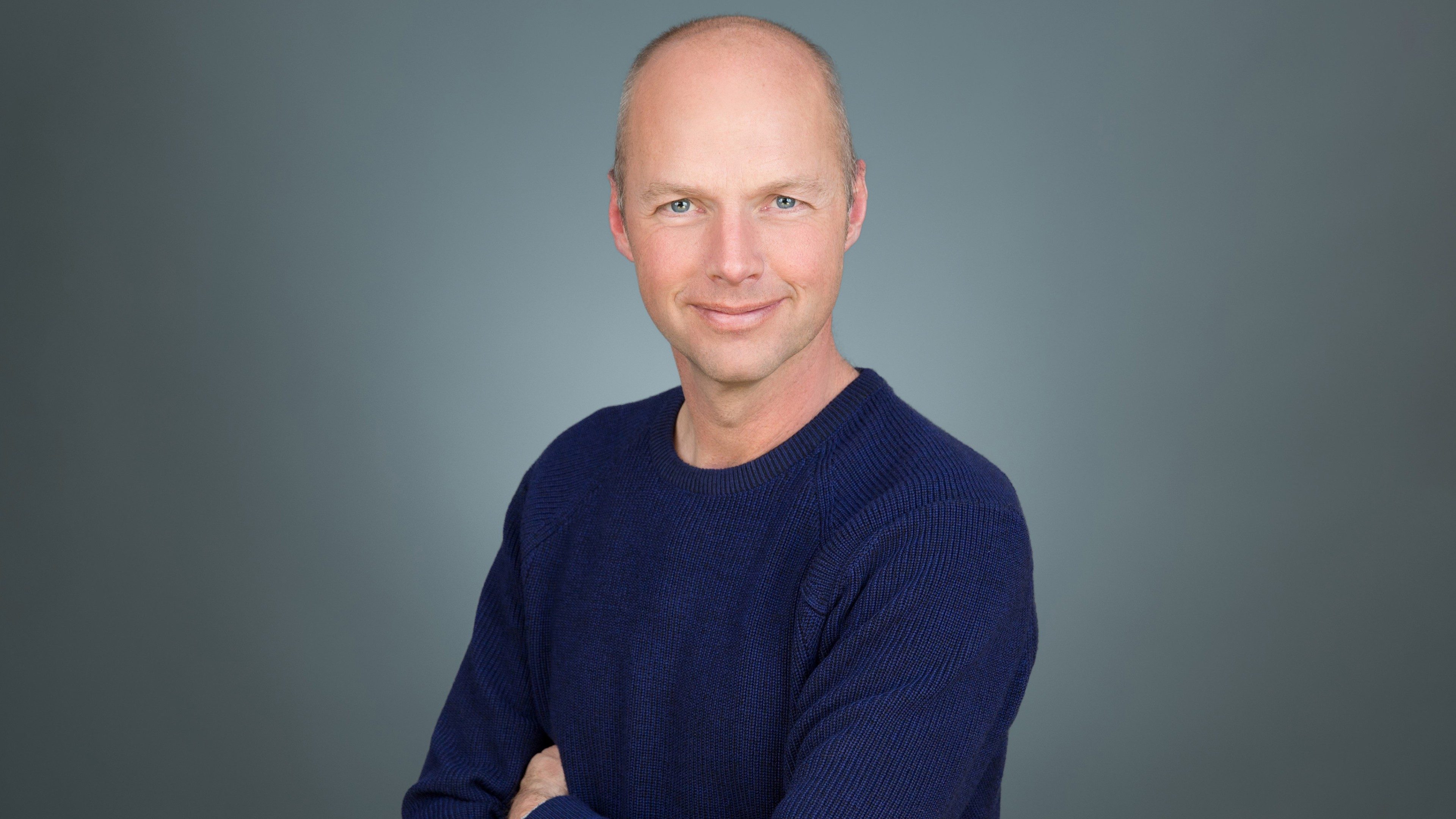Researchers agree: technological progress is revolutionising medicine and significantly prolonging human life. In this interview, reporter and author Thomas Schulz explains the role of big tech companies, what longer lifespans mean for retirement planning and whether immortality is more than just a thought exercise.
Mr Schulz, will it be normal in future to celebrate your 100th birthday?
Yes, I assume so. When exactly this becomes the average lifespan for the majority of the population depends on the medical advances made. Life expectancy regularly increases by leaps and bounds as a result of technological developments, such as the progress in artificial intelligence that we’re currently seeing. So we’re not going to see a linear increase in lifespan, but rather an exponential one. The conservative estimate is that people born today will live to the age of 100. Basically all the experts in the field of gerontology expect that there will be many more people from even earlier generations reaching that age as well.
Do you think living to be that old is necessarily a good thing?
My answer is what everyone would probably say: yes, if you’re healthy. Currently, the last 20 years of people’s lives are often associated with illness and pain, which is of course not what anyone wants. But developments are pointing towards people being able to stay healthier for longer thanks to improvements being made in treating diseases.
People born in 1950 had a life expectancy of 66 years. But for today’s newborns, they're already expected to reach 100 years old. Could immortality become a reality?
That’s not something I spend a lot of time thinking about. Some well-known experts assume that there is no compelling biological mechanism behind the currently assumed maximum lifespan of 120 years and that people could theoretically live for up to 200 or 250 years. Scientists are currently debating which mechanisms limit life expectancy. In the animal kingdom, there are some species that live significantly longer than humans. One could argue that it is more difficult for more complex organisms to reach that age. However, it should be possible for some of these complex organisms to push this boundary as well. I’ll leave it at that (laughs).

In your book, you write that big tech companies will revolutionise medicine thanks to AI and data technology. Why will these technologies have such a huge impact on medicine?
Ultimately, these technologies drive every advance in the natural sciences. By this, I mean all technologies related to data management and data science, with AI being the main area. We also see this in medicine – with the Covid vaccine, for example, and the fact that gene therapies are becoming possible. It’s simple: AI and big data will bring about enormous gains in knowledge because they allow us to work with unprecedented amounts of data. In cancer research, for example, it is now possible to sequence the genome of each patient, to decode and analyse their DNA. This is a huge computing task that was unimaginable 10 years ago but can now be done easily.
Which area of medicine do you think will be impacted the most by these technologies?
The greatest progress can be seen in cancer research. Cancer is the second leading cause of death, so a lot of resources have always been dedicated to cancer research. The other two big fields that stand out are gene therapies as well as treatments for neurodegenerative diseases, such as Alzheimer’s. But it’s not that easy to pick out a particular field, because there’s a fundamental acceleration going on in all areas. Things can suddenly appear that no one expected.
Will big tech firms determine the future of medicine even more than, say, pharmaceutical companies or healthcare professionals?
No, not directly. Google, for example, is unlikely to become a pharmaceutical company that wants to sell medications. However, these companies provide the technologies that will underpin the medicine of the future. The next major technological advance is quantum computing, which is based on its own special kind of computer science. Quantum computers should become viable in the next four to six years and have a similar impact to AI. Tech companies have a big head start in this area, since these technologies require a lot of computing power and it costs millions to train them. Why would a pharmaceutical company try to set up this kind of infrastructure? I think it’s more likely that companies will buy these services from third parties.

What does a longer life mean for people’s financial self-determination?
If a person now lives for another 40 years after retiring rather than 15, you’re going to need a system to finance that. If you do the maths, you’ll see that this wouldn’t work at the moment. If we all grow older, it will put a strain on welfare systems. This means that people will likely have to work on improving their financial situation.
Will people need to pay even more attention to their retirement planning in future?
That would be the hope. However, there is only so much that can be done to make people aware of the need to prepare well for retirement. You usually only reach the part of the population that is already planning well for their old age. It’s a challenge to get the message out to people who haven’t yet adequately prepared for their retirement. And I’m afraid these issues will hit many people sooner than expected. People are used to linear acceleration, but life expectancy may actually rise much more rapidly.
You are now 50. Are you already making specific preparations for a longer, pain-free life in old age?
I’m preparing to grow old in a healthier way. We have known for some time that we can – and must – do a lot to achieve this in middle age, between the ages of 40 and 50. Physical fitness plays a major role in how healthy you are in old age. If you still want to hike up a mountain at 80, you can’t wait until you’re 70 to start training. All the long-term studies show that people who are fit at 50 tend to stay fit into old age. The biggest levers are the ones we can control ourselves: for example, nutrition, stress management and emotional health.

Are you also preparing financially for reaching an advanced age?
The more you look into the issue, the less you can avoid the realisation that you have to organise your finances differently. If I want to continue leading an active and exciting life at the age of 95, I'll need the financial means to do so. So I may have to make better preparations for that now.
What do advances in longevity mean for retirement planning in general and for companies that offer those kinds of services?
This is certainly a large market for companies, as people need to save more for the future and find different ways of supporting themselves. I think it is unlikely that the bulk of this can be absorbed by state systems, and I expect a lot to flow through private pensions instead. Personally, I’m already thinking about how my child will one day plan for the future so that they have enough money when they reach retirement age. This inspires me to act differently now.

Thomas Schulz
Thomas Schulz (1973) is a reporter in the main editorial office of “Der Spiegel”. Prior to that, he was a Spiegel correspondent in the US for nearly a decade. In 2015, he published the book “Was Google wirklich will” (“What Google Really Wants”). His book “Zukunftsmedizin – Wie das Silicon Valley Krankheiten besiegen und unser Leben verlängern will” was published in May 2018 and shows how companies and start-ups in Silicon Valley are using new technologies to research the medicine of the future. His new book “Projekt Lebensverlängerung – Wie 100 gesunde Lebensjahre dank Spitzenforschung und Hightech jetzt schon möglich werden – und was wir selbst dafür tun müssen”, which investigates how cutting-edge research and technology will dramatically extend lifespans, will be published in September.
Pictures by Michele Limina. This interview with Thomas Schulz took place as part of his presentation at the Swiss Institute of International Studies (SIAF).



